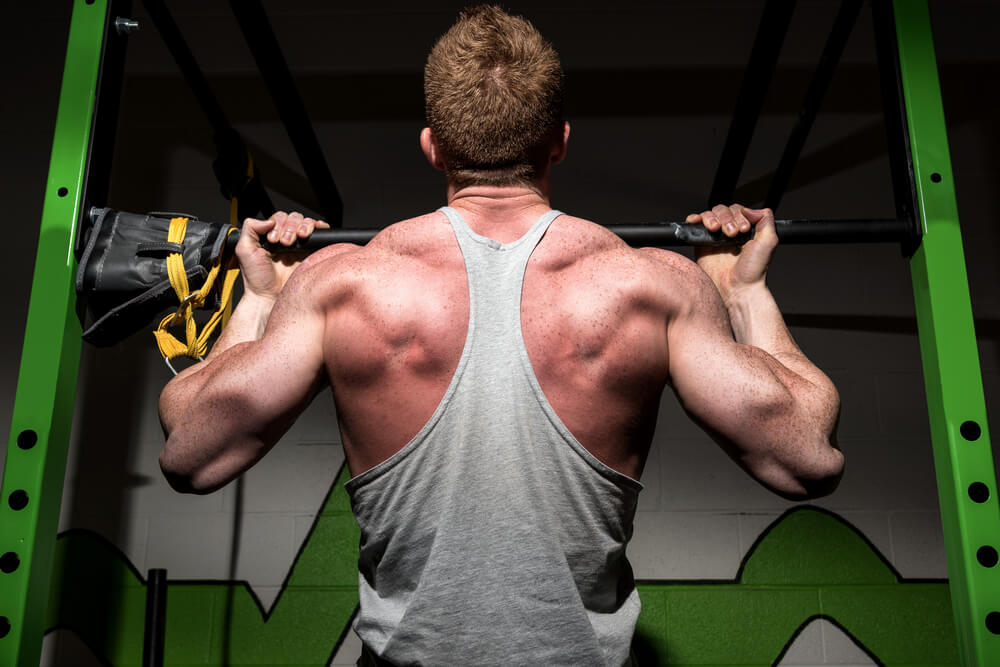
You workout, right? Chances are you’re not training your back the best way.Here’s an awesome best back workout to build a dream physique in the process!
Building a stronger back may seem a bit hard. After all, results may take a little time to really show. You need to remember, though, that your back is a pretty large area to cover and most tend to include the trapezius muscle in this region of training.
But, you can build a larger and better-defined back through proper easy diet plans and, of course, training. You just need an easy plan for a full back workout.
The program to achieve this is simple to follow, but you will need plenty of motivation and determination to participate in it.
Let’s take a look at what helps increase the strength, endurance and build muscle. We will then proceed on to your specialized training program that can be used for a variety of reasons.
We’ll give you the best upper back exercises for a killer back workout. These are the best back exercises for mass.
Pulling Movements Increase the Happiness of Your Back Muscles
A pulling movement is an exercise that literally requires you to pull the resistance towards your body.
You see this method being used mainly during full back workout training since you need movements that squeeze your back muscles into contracting. The main pulling exercises you probably are aware of end with the word row.
But pull-ups and shrugs are placed under the same category as well.
With movement you also have to take into account the load, volume and frequency you perform back focused home exercises.
These variables are what make or break your training program, especially when it is specifically geared towards a specific muscle region.
This Is Load
Let’s take a look at the most important variable known as load. Load is basically the amount of weight or resistance you will be choosing for each exercise set.
You could stick to using that specific load for all of the chosen exercise sets.
You can increase or decrease the load for your own specific needs. Increasing your load after each set is called progressive overload. This is the most commonly practiced method.
Progressive overload just means you are slowly attempting to overload your muscles towards fatigue during the last set or two.
For example, this could be adding as little as 2.5 pounds to each dumbbell or side of the barbell.
This Is Volume
Next up is volume. This is determined mainly by the load you have chosen for your goal.
Lighter loads are for muscle maintenance and increases to your muscle endurance and definition. Moderate loads are for muscle building.
Heavier loads are for power and further muscle building. Back strength could result from either of these load types, but most will come from moderate load settings.
This has to do with load.
You obviously know using a heavy load setting means you will not be performing 30 reps. It is just not possible if the load truly is heavy for you.
Here Is An Approximation Of The Reps That Go With Load
Light Loads – 13 or more reps
Moderate Loads – 8-12 reps
Heavy Loads – 4-7 reps
Super Heavy Loads – 1-3 reps
As mentioned these are approximations for the reps that are most commonly used for training programs. Now sets are more up to you.
Usually you do not need to go over five sets unless you are doing a lot of super heavy sets with 1 to 3 reps, which most people simply do not follow.
Basically your volume of sets and reps with the load chosen are going to equal the total amount of weight lifted that day for specific muscle regions.
This calculation can be used to precisely see if the total load lifted that day meets your training requirements.
This Is Frequency
Frequency is important because it sets the path for achieving your overall training goals. This term simply means how often you perform a task such as how many days you train per week.
If you only train two days each week, it will take you a very long time to build a stronger back.
Having a specialized frequency of training four days per week would be much more efficient and effective for strength and muscle increases.
Of course, alongside that should be a healthy diet.
Compound Back Exercises Are Important
Want an easy plan for a full back workout?
Then you have to try compound exercises. Compound exercises use multiple joints and muscle groups instead of just focusing on one particular area. That means you get a full back workout.
Why?
Most compound movements use both the upper and lower body to perform the exercise since you need the regions for execution and balance.
When doing compound lifts, you are lifting the weight to where your body could be thrown off balance. This is the reason why many stabilizer muscles are also activated to prevent this situation. Which is why you need a great arms workout.
For example, during the shoulder barbell overhead press, your legs are helping your body stay up straight with even distribution. But, this is considered an upper body movement since your arm, traps, chest and shoulder muscles contract to press the weight and allow your arms to extend. This is a great shoulders workout.
This helps increase your training potential and growth.
Regular Deadlifts
This is one of the most popular compound back exercises being performed these days. The whole concept behind the deadlift workout is to literally lift dead weight directly from the ground against gravity.
Normally you use a barbell for this exercise, but you can use dumbbells as well if that is all you have access to.
Also, research deadlift vs squat, and how to do deadlifts.
The main muscles targeted are your lower back, spinal erectors and upper back. This is one of the great back workouts for men.
The secondary muscles recruited are your traps, hamstrings, arms, abs and shoulders.
Stiff Legged Deadlift
You may have heard of this being referred to as SLDL.
This variant is different because you are lowering the weight below your knees, but stopping before hitting the floor. Normal deadlifts are when you actually lift the weight off the floor for each rep.
The stiff legged deadlift focuses mainly on your hamstrings, spinal erectors and lower back. There is also some emphasis on your glutes.
Bent Over Row
The bent over row is not to be confused with the Yates row. This variant is when you are fully bent over and pulling the weight to your body from the floor for each rep.
The Yates row differs because you bend forward halfway and pull the weight towards your midsection each rep. Both are great compound back exercises for strength and mass though.
The main muscles recruited are your lats, traps and biceps. Make sure research how to do bent over rows.
Good Mornings
This exercise is not really performed as often as it should be for back training. You basically stand as if in position to do a barbell back squat. But, instead of squatting, you begin to bend at the hips and lower your chest slowly.
Once your body has fully bent over, you basically push the weight back. This is essentially back hyperextensions in the standing position.
Your lower back, spinal erectors and hamstring muscles receive the most contraction.
This Is Best Back Workout For Back Strengthening
All the prior info was to get you pumped up and ready to do full back strength training workouts and muscle increases. You will be focusing mainly on your back for an entire month to set the stage for it to grow.
After that, you should continue with your normal weekly workout routines. Do the following training week for four straight weeks and you will definitely start seeing results.
Please refer to the rep and load points to choose the amount of resistance for each exercise given. For example, if you see 8-12 reps, then you will be using moderate weight settings.
This is How Your Week Will Look
Day 1 – Back
Day 2 – Legs and Abs
Day 3 – Chest, Shoulders and Arms
Day 4 – Back
Day 5 – Cardio
Day 6 – Rest
Day 7 – Rest
Day 1 Is For Back
Exercise Sets Reps
Deadlift x5 x4-6
Bent Over Row x5 x8-10
Standing Cable Reverse Flye x4 x8-10
Seated Row x4 x8-10
Lateral Pull Down x4 x8-10
Day 2 Is For Legs And Abs
Exercise Sets Reps
Squat x5 x4-6
Leg Extension x4 x8-10
Leg Curl x4 x8-10
Leg Press x4 x8-10
Crunch x3 x30
Hanging Leg Raise x3 x25
Russian Twist x3 x20
Day 3 Is For Chest, Shoulders And Arms
Exercise Sets Reps
Flat Bench Press x5 x8-10
Dumbbell Pullover x4 x8-10
Seated Dumbbell Shoulder Press x5 x8-10
Preacher Curl x4 x8-10
Cable Triceps Pulldown x4 x8-10
Day 4 Is For Back
Exercise Sets Reps
Stiff Legged Deadlift x5 x4-6
Yates Row x5 x8-10
Good Mornings x5 x4-6
Farmer Walk x4 Walk 15 seconds
Single Arm Seated Row x4 x8-10
Day 5 Is For Cardio
Do cardio-based activities that last at least 30 to 45 minutes.
Day 6 And Day 7 Are For Rest
You Need Your Rest For Your Back Workout
Rest and recovery are vital to your back strengthening program.
Why?
Your muscles need time to relax if they have been placed under enough intensity. The rest time is 24 hours minimum. With that said, 48 hours may be advised for people who are just starting out. This rest time is intended to allow your body to go through the repair and recovery phase. Which leads to muscular growth.
When you train at high enough intensity your fast twitch muscle fibers become torn microscopically. This cellular damage is the reason why your muscles feel so sore after training most of the time.
During the 24 to 48 hours of rest, the muscles that have been damaged are receiving protein and other nutrients to help repair the torn muscle fibers.
This only occurs if you do not perform intense activities against that particular muscle group. That is why the specified training days are called rest days. You generally want at least one day of complete rest, but most weeks have five training days and two days of rest.
A rest day does not mean you have to just sit around and not really be active. You should still perform your usual daily activities.
Something to consider would be doing static stretches for five minutes during your rest days to allow better blood flow to the damaged muscle fibers and your body. More blood flow basically means a heightened amount of nutrients being sent towards the muscles. Protein, BCAAs and creatine monohydrate are supplements to consider since they can possibly boost the recovery process and allow muscles to grow more effectively.
Conclusion
You wanted an easy plan. Now you have it. We’ve given you the best upper back exercises to ensure you have a killer back workout. This info should surely give you all you need to get a full back workout and prompt your back to get stronger in an effective manner.
As mentioned, you should only follow this specialized program for a total of four weeks. From there, carry on with a normal lifting week focusing enough time on each major muscle group.
Note: Never try to do the heavy lifts mentioned without a spotter and barbell clamps.
You could cause serious damages to yourself or other gym patrons. You may even break the equipment. You should also consider doing five minutes of dynamic stretches.
Remember: These are the best back workout for mass. With them, you should find success. Enjoy your stronger back!
– By Brian Pankau, CPT
Latest posts by Terry M (see all)
- Garage Gyms - Aug 1, 2018
- Kettlebells – Why They Should Be Added To Your Routine. - Jul 24, 2018
- Weight Belts: What Are They Really For? - May 31, 2018

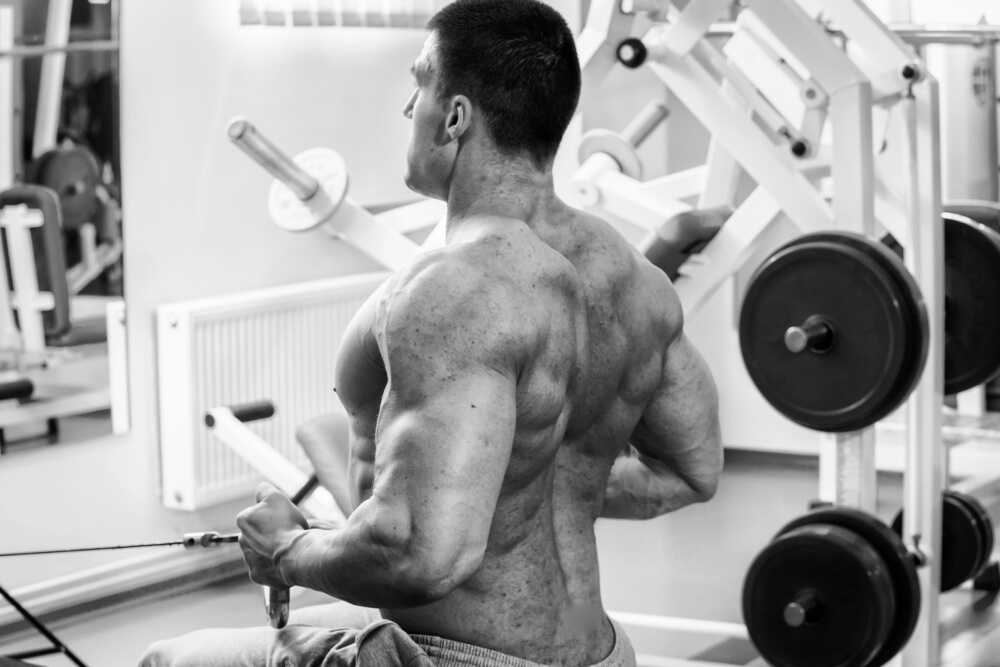
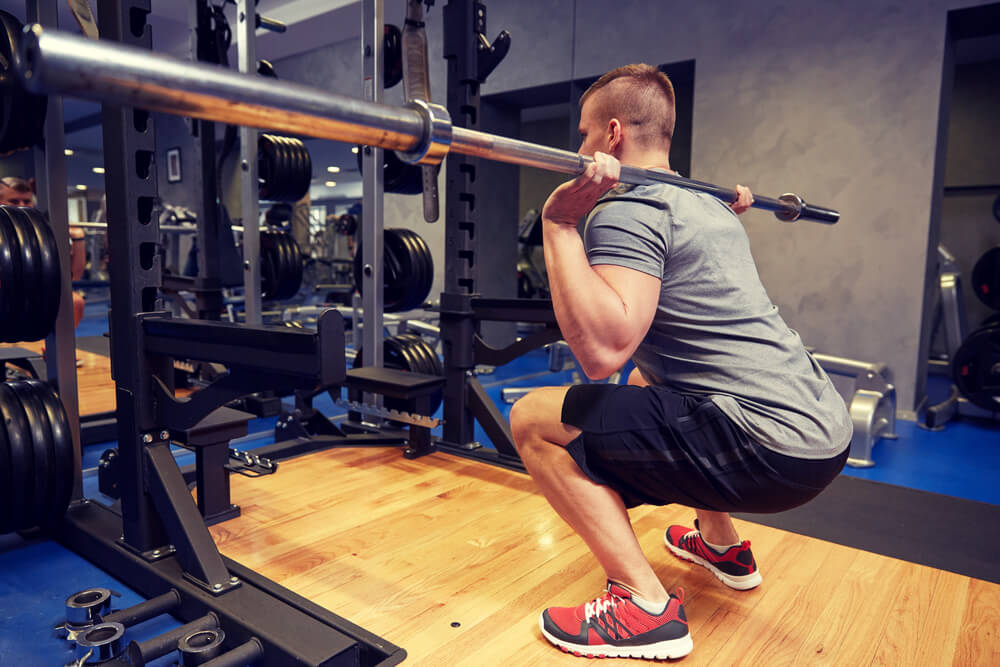
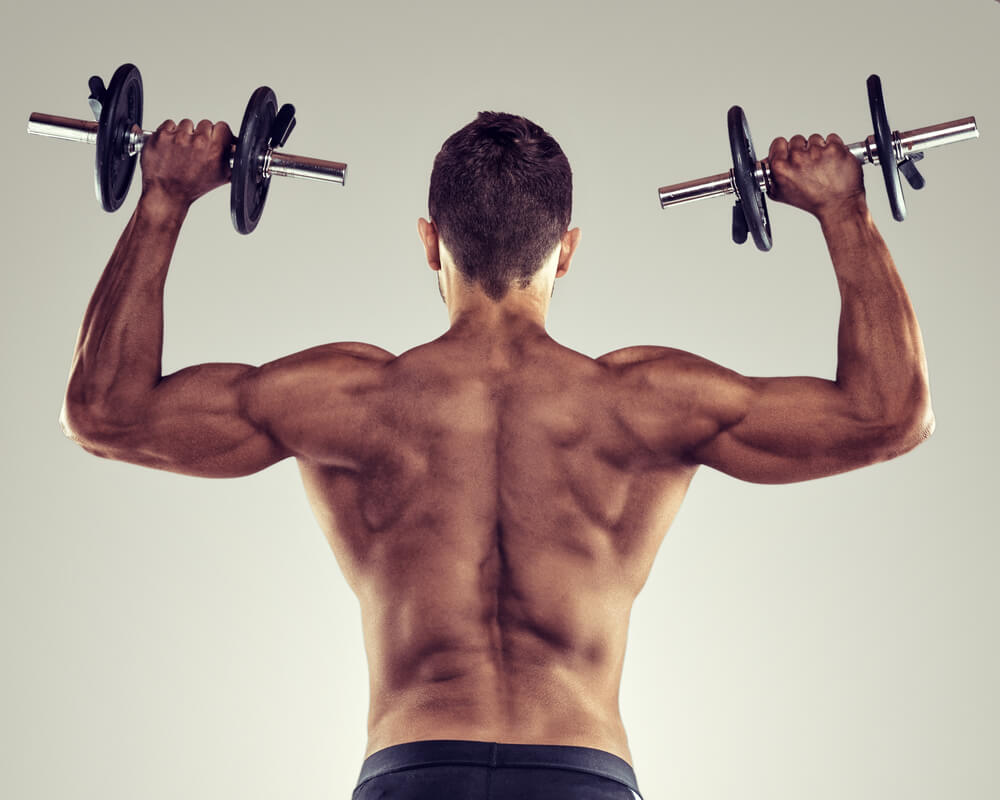
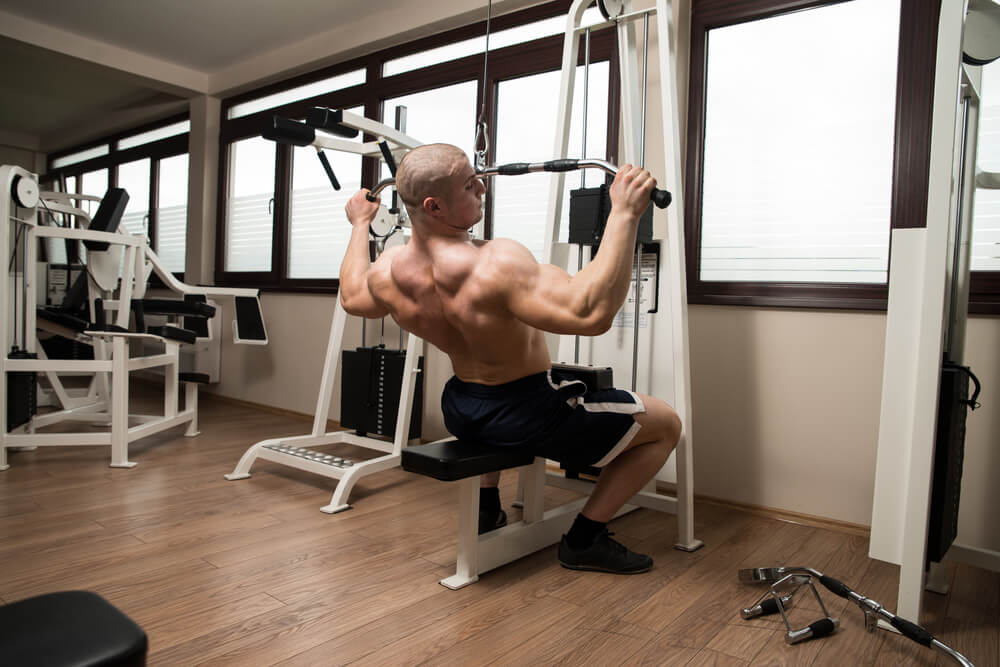
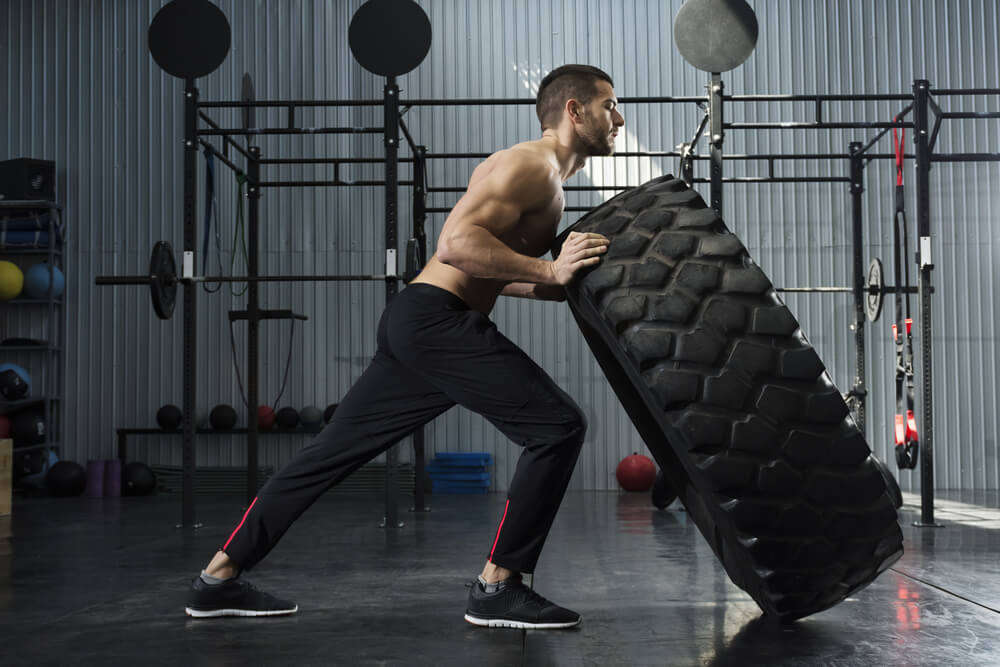




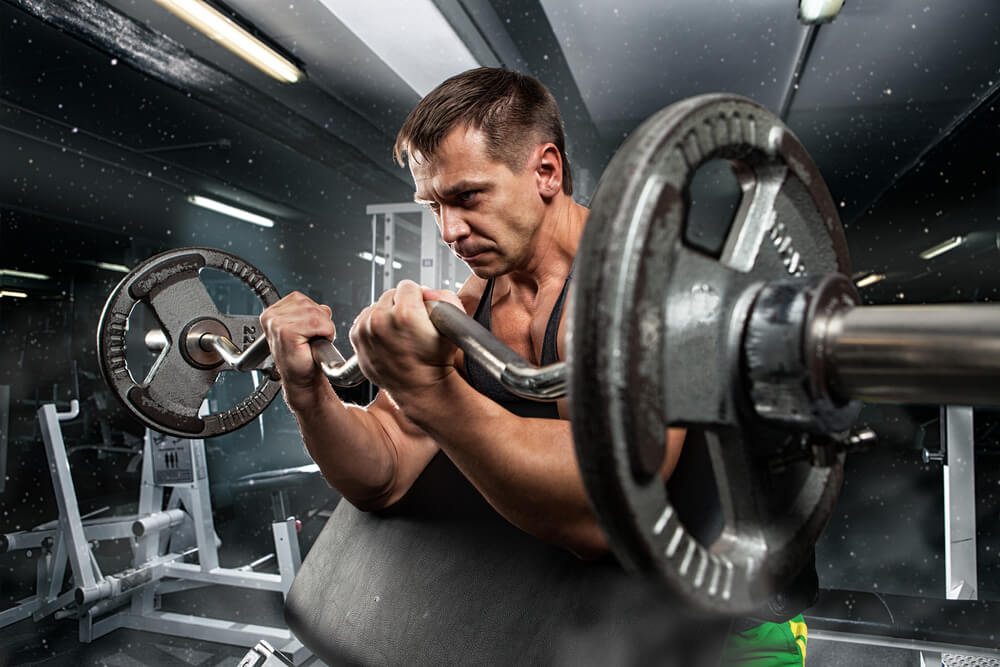




good job. i really enjoyed reading this article!
Alex,
Thanks man, appreciate it! Good luck on your back workout 🙂
Terry
Some good workout tips for back day thanks Terry 😉
D
Demi,
Glad you enjoyed the post thanks for stopping by!
Terry Asher
[…] together for a back-fat-blasting workout! Before you jump into the moves, make sure to start with a warmup and dynamic stretching “to ready the muscles and to prevent injury,” says certified personal trainer and owner […]
[…] together for a back-fat-blasting workout! Before you jump into the moves, make sure to start with a warmup and dynamic stretching “to ready the muscles and to prevent injury,” says certified personal trainer and owner […]
[…] together for a back-fat-blasting workout! Before you jump into the moves, make sure to start with a warmup and dynamic stretching “to ready the muscles and to prevent injury,” says certified personal trainer and owner […]
[…] together for a back-fat-blasting workout! Before you jump into the moves, make sure to start with a warmup and dynamic stretching “to ready the muscles and to prevent injury,” says certified personal trainer and owner […]
[…] together for a back-fat-blasting workout! Before you jump into the moves, make sure to start with a warmup and dynamic stretching “to ready the muscles and to prevent injury,” says certified personal trainer and owner […]
[…] together for a back-fat-blasting workout! Before you jump into the moves, make sure to start with a warmup and dynamic stretching “to ready the muscles and to prevent injury,” says certified personal trainer and owner […]
[…] together for a back-fat-blasting workout! Before you jump into the moves, make sure to start with a warmup and dynamic stretching “to ready the muscles and to prevent injury,” says certified personal trainer and owner […]
[…] together for a back-fat-blasting workout! Before you jump into the moves, make sure to start with a warmup and dynamic stretching “to ready the muscles and to prevent injury,” says certified personal trainer and owner […]